Stories from the Field: Jun Gemparo
SURIGAO DEL NORTE — Reynaldo Gemparo, Jr. or ‘Jun’ as he’s known by everyone, dropped out of school after finishing the third grade at 13 years old. Since then, he’s been helping his father earn extra income for both of them. Jun is the youngest son of his namesake, 69-year-old Reynaldo Gemparo, Sr. Together, they live in Barangay Magsaysay of the Siargao Islands. Jun helps his father in their day-to-day chores especially if it involves lifting heavy items.
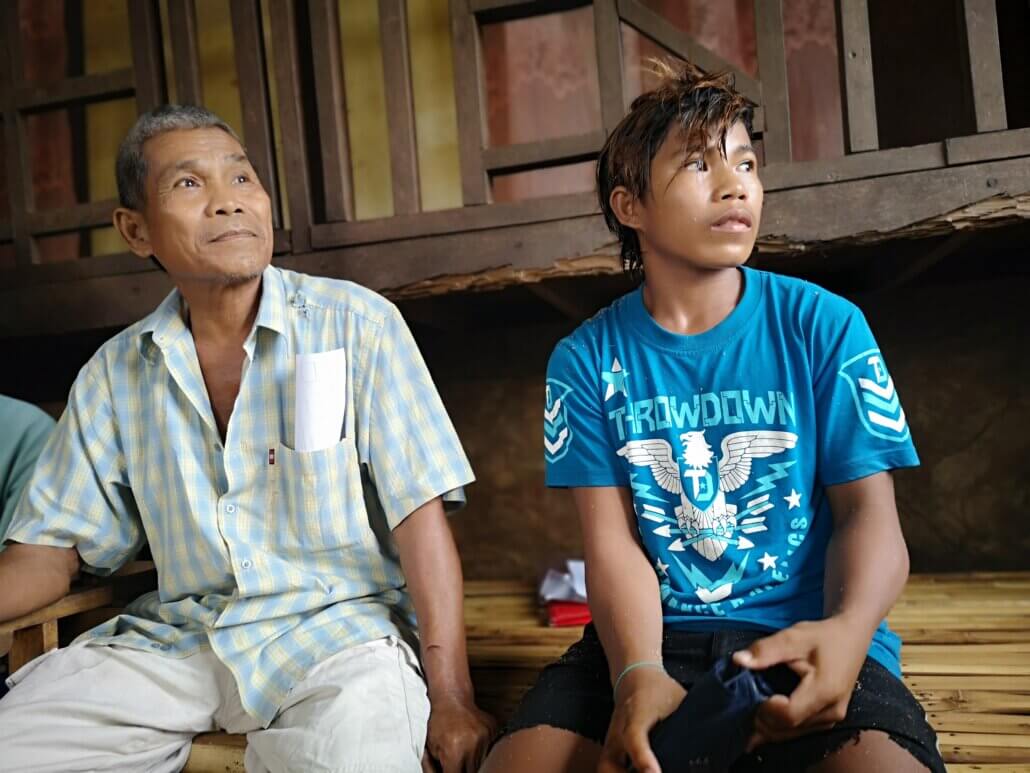
rpt
When our team first met him, he had just refilled a water container from the newly installed water bladders in their barangay. Siargao was severely affected by Super Typhoon Odette (internationally named Rai) after making landfall in the Philippines last December 16, 2021.
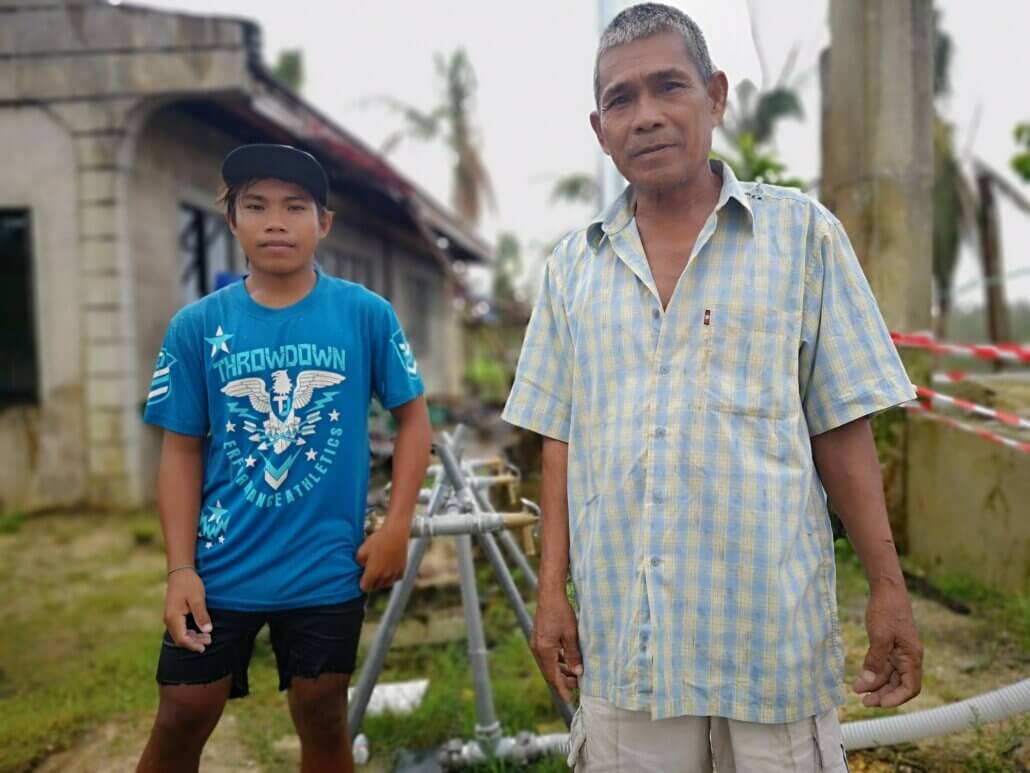
Before the landfall, the Gemparos had evacuated to their neighbor’s house but the strong winds nearly wiped out that home too. Eight of them were packed in the comfort room as the storm wrecked the roof and all parts of the house. In the middle of that chaos, Jun said he saw fear in the eyes of those around him, including his father. They felt helpless as the wind raged above their heads. After that ordeal, the father and son soon realized that their home and livelihood had succumbed to the typhoon. Despite the devastation, Jun is thankful that they survived unscathed, and the fear quickly subsided.
The harsh typhoon had not only damaged several water pipes but also polluted their deep-well water source. After the storm, access to potable water became a problem. The water from the community’s deep well started tasting bad. It wasn’t until our water, sanitation, & hygiene (WASH) engineers tested the source and eventually confirmed that the water was indeed contaminated and unsafe for consumption.
To get clean water for drinking and cooking, the residents of Barangay Magsaysay use either boiled rainwater or opt to buy filtered water sold at 50 pesos per gallon. However, with summer around the corner, they know they would have to resort to buying water instead—an additional expense to their daily necessities. When two new water bladders were installed in their community, the Gemparo’s and the rest of the residents now had less to worry about.
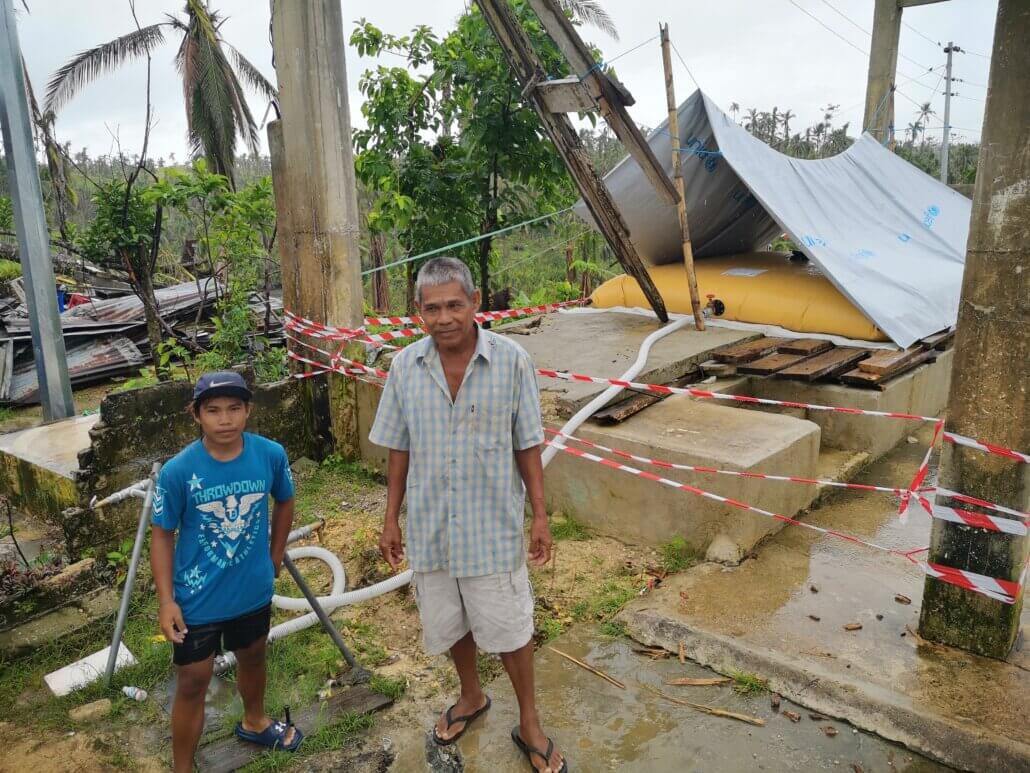
Through the support of the United Nations Children’s Fund (UNICEF) and United Nations Central Emergency Fund (UN CERF), potable water was easily made available through the Super Typhoon Odette Emergency WASH Response implemented by Action Against Hunger Philippines in Caraga. After refilling the water container, Jun made his way back to their relative’s house where he and Reynaldo Sr. are now temporarily residing while they gradually work their way back to their normal life.
To help support their small family, Jun participates in crab fishing which then became their main source of income. Prior to Typhoon Odette, Jun would usually earn 200 pesos a day from catching crabs. On good days, he sometimes earned up to 1,000 pesos from tourists. After losing their boat to the typhoon, the father and son are left with no source of income. Nowadays, they rely on donations, financial support from relatives, and their remaining savings.
At his age, Jun already knows how to step up and be the head of the household. When asked about his dreams, his eyes lit up as he quietly replied, “makabalik sa eskwela” (to go back to school). He went on to add that he wants to learn another skill so he can have a good job in the future.
The Super Typhoon WASH Emergency Response in CARAGA is implemented by Action Against Hunger with funding from the United Nations Central Emergency Response Fund (UN CERF) and United Nations Children’s Fund (UNICEF). ●


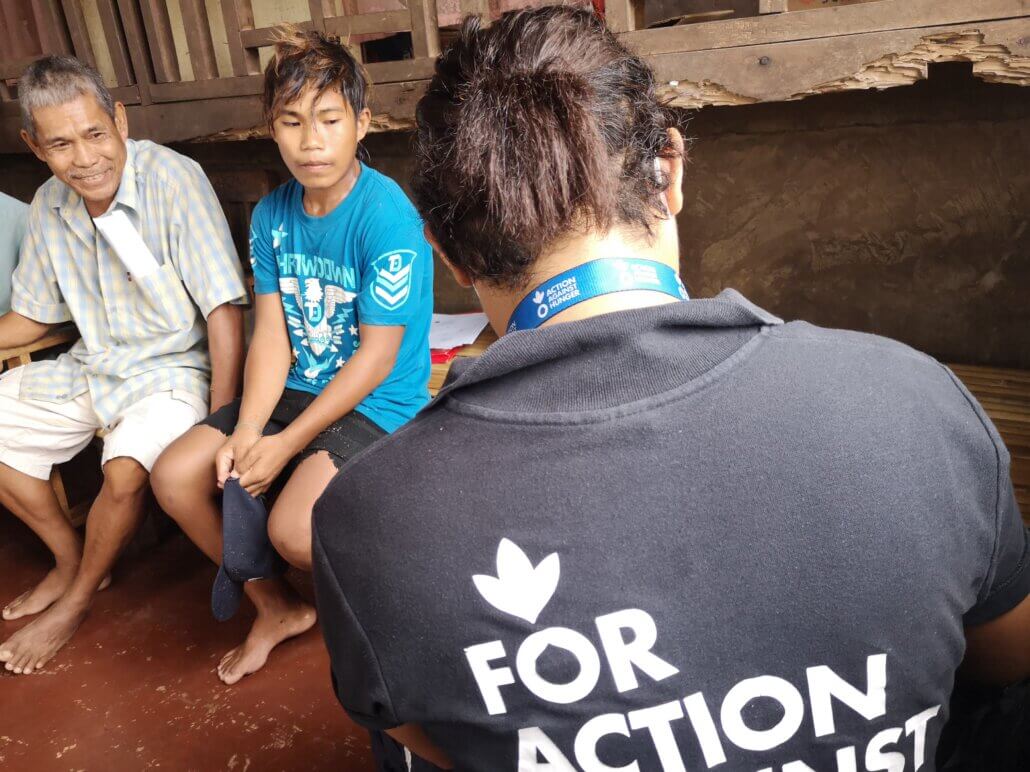
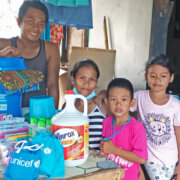
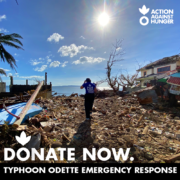
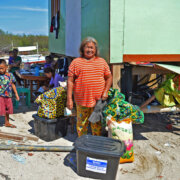
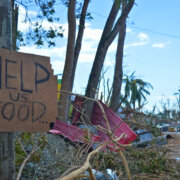
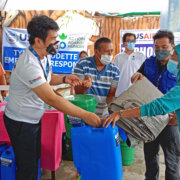

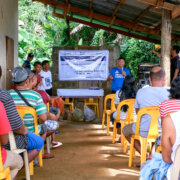
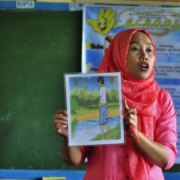



Leave a Reply
Want to join the discussion?Feel free to contribute!